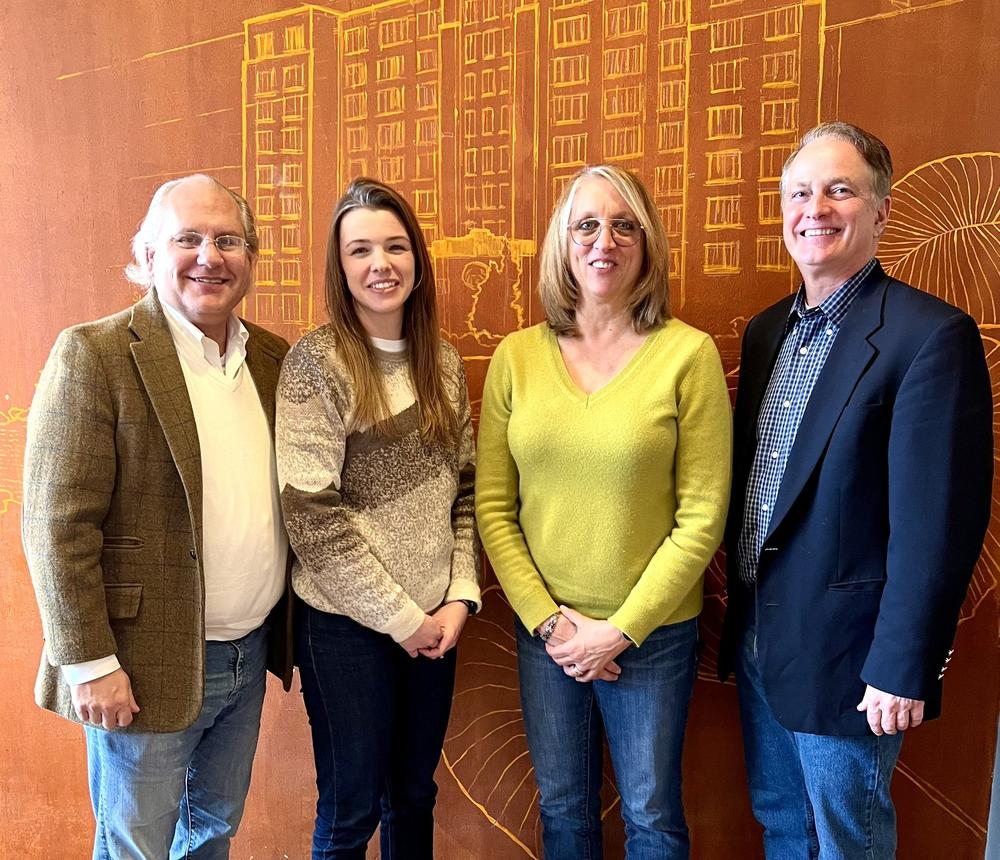
Caption
Team Georgia Council for Recovery during a Jan. 6, 2023, working session with Chief Judge Brian Amero, a member of the Behavioral Health Reform and Innovation Commission.
Credit: Twitter.com/Recovery_GC4R
LISTEN: Monday, Jan. 9, marks the start of a new legislative session and the Georgia Council for Recovery plans to advocate for programs and policies that help those with substance use disorder. GPB’s Ellen Eldridge has more on their priorities.

Team Georgia Council for Recovery during a Jan. 6, 2023, working session with Chief Judge Brian Amero, a member of the Behavioral Health Reform and Innovation Commission.
Legislative work done during the last session paved the way for establishing standards around sober living houses.
A 2021 law, Senate Bill 4, now makes kickbacks for referrals illegal.
Because transitional housing arrangements are not treatment facilities, they are not regulated, and they are typically not covered by insurance, state Sen. Kay Kirkpatrick said last year.
It's often a cash business, in which people can take advantage of the situation that parents and loved ones find themselves in when trying to help someone with substance use disorder, said Kirkpatrick, who also sponsored bills to protect syringe exchange programs and to crack down on bad actors in the transitional housing community.
"It was a cash cow for people," explained Missy Owen, who started the Davis Direction Foundation to support people in recovery after her son, Davis, died of a heroin overdose in 2014.
She said the problem is that anyone can open a sober living house without a permit or certification required. Often, a person with as little as two months of sobriety becomes the house manager, Owen said.
"They needed money and they say, 'Hey, I have a house. If I open up my house to five or six people, 10 people, 12 people and put them on the floor on sleeping bags or whatever and charge them all $200 a week, then I'll be sitting pretty and, you know, who cares,'" Owen said.
With the passing of SB4, the state attorney general has oversight concerning patient brokering.
Jeff Breedlove, with the Georgia Council for Recovery, said what advocates want now is better regulation of the sober living facilities themselves.
"We anticipate that there will be legislation dealing with putting in some standards in recovery living residences or sober living houses, as they are commonly called right now under Georgia law," Breedlove said. "There are no legal standards. It's kind of a wild, wild West."
The Council is working with the Georgia Association of Recovery Residences, which is a self-policing volunteer association.
Any legislation introduced is expected to give family and peers assurances that there are legal consequences for abuse or fraud that goes on in these sober communities, Breedlove said.
This session, the Substance Use Disorder Policy Partnership will advocate for more resources for substance abuse prevention, treatment, and recovery, Breedlove said.
The partnership consists of 40 organizations serving people affected by substance use disorder (also known as addiction), and the group collectively represents more than 1 million Georgians, their families, and the professionals who provide substance misuse services.
They support policies that advance positive solutions, increased funding, and removes stigmatizing barriers for those impacted by addictions and the professionals who provide care and services.